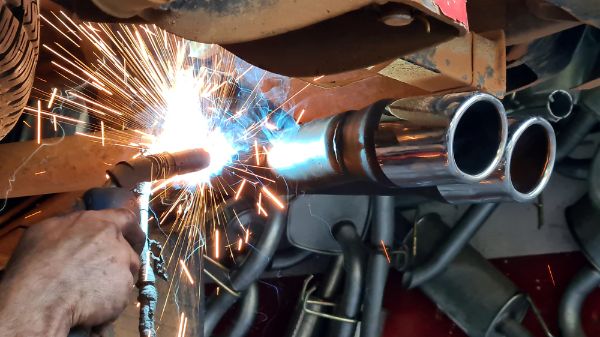Your vehicle communicates with you in subtle ways, and one of the clearest signs that something isn’t quite right is unusual noise coming from the exhaust system. A key solution to many of these issues is muffler repair, a service that ensures your vehicle runs smoothly, quietly, and safely. At Goods Automotive, we specialize in comprehensive muffler repair and replacement services that keep your vehicle performing at its best.
Why Muffler Repair Matters
The muffler is a critical component of your vehicle’s exhaust system. Its primary job is to reduce the noise produced by the engine and direct exhaust gases safely away from the vehicle. Over time, mufflers can become rusted, develop holes, or experience internal damage, leading to loud noises, decreased performance, and potentially harmful emissions. A timely muffler repair restores your vehicle’s efficiency, reduces unwanted noise, and ensures your exhaust system is functioning properly.
Signs Your Vehicle Needs Muffler Repair
It’s important to pay attention to the signals your vehicle sends. Common signs that your muffler may need repair include:
- Loud or unusual engine noises
- Vibrations or rattling under the vehicle
- Visible rust or holes in the muffler
- Exhaust fumes inside or around the vehicle
If you notice any of these symptoms, it’s time to schedule a professional inspection. Our experienced technicians at Goods Automotiveuse advanced diagnostic tools to pinpoint the issue and provide precise muffler repair or replacement, restoring both safety and comfort to your ride.
Benefits of Muffler Repair and Replacement
Beyond reducing noise, a proper muffler repair can improve your vehicle’s overall performance. When the exhaust system is in good condition, your engine runs more efficiently, emissions are minimized, and your vehicle maintains optimal power. Additionally, a repaired muffler helps prevent further damage to other parts of the exhaust system, saving your vehicle from more extensive repairs down the line.
Trust the Experts
At Goods Automotive, we understand that every vehicle is unique, and our team is trained to handle all types of muffler issues for everyday vehicles. From minor repairs to full replacement, we provide thorough, reliable services to keep your vehicle running safely and quietly. Don’t ignore the signs, your vehicle is talking to you, and proper muffler repair is the answer.
Schedule your appointment today at Goods Automotive, and let us help your vehicle perform its best while keeping the ride smooth and quiet.

